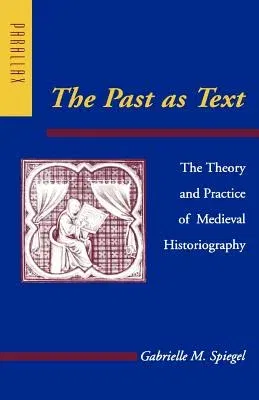Gabrielle M Spiegel
(Author)The Past as Text: The Theory and Practice of Medieval Historiography (Revised)Paperback - Revised, 15 October 1999

Qty
1
Turbo
Ships in 2 - 3 days
In Stock
Free Delivery
Cash on Delivery
15 Days
Free Returns
Secure Checkout

Part of Series
Parallax: Re-Visions of Culture and Society
Part of Series
Parallax: Re-Visions of Culture and Society (Paperback)
Print Length
320 pages
Language
English
Publisher
Johns Hopkins University Press
Date Published
15 Oct 1999
ISBN-10
0801862590
ISBN-13
9780801862595
Description
Product Details
Author:
Book Edition:
Revised
Book Format:
Paperback
Country of Origin:
US
Date Published:
15 October 1999
Dimensions:
21.64 x
13.94 x
2.06 cm
Genre:
Medieval (500-1453) Studies
ISBN-10:
0801862590
ISBN-13:
9780801862595
Language:
English
Location:
Baltimore
Pages:
320
Publisher:
Series:
Weight:
408.23 gm